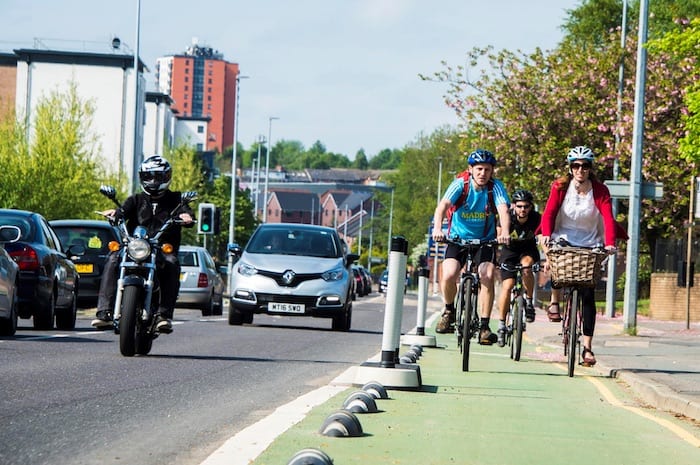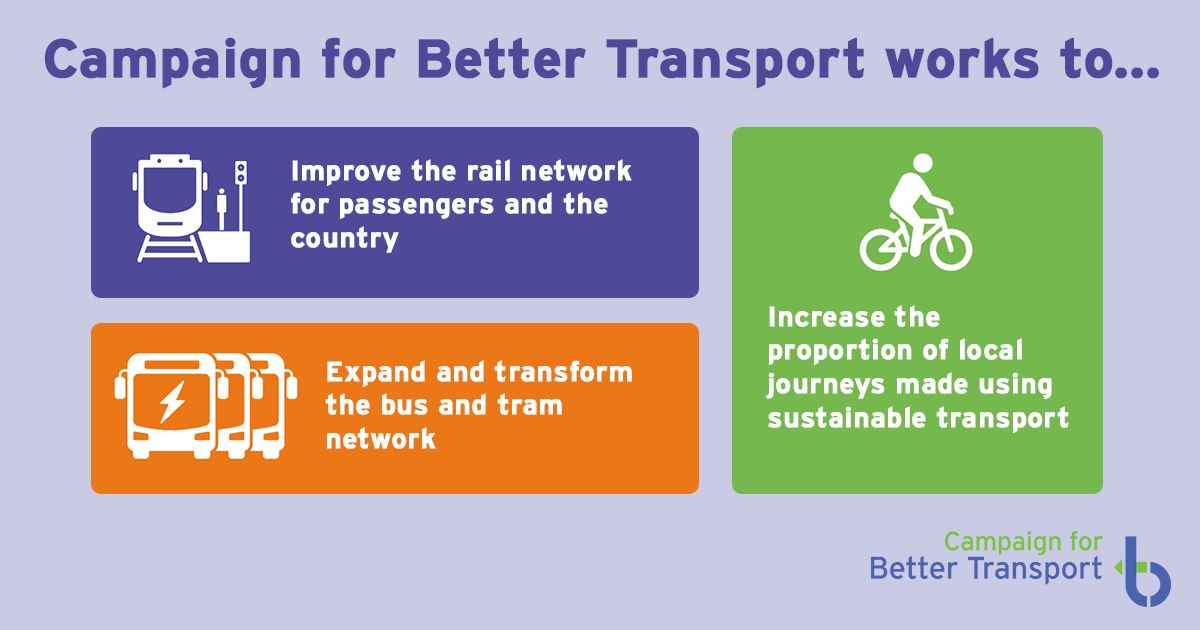
Sustainable travel is more than a lifestyle choice—it’s an essential part of tackling climate change, improving health, and supporting local economies. Here in Cheshire West, we’re seeing both opportunities and challenges as the region works to reduce car dependency and make active and public transport more accessible for everyone.
Rail Reform: A Chance for Better Connections
The UK is on the verge of a major rail transformation. Great British Railways will soon manage the entire network, potentially becoming the second-largest employer in the country after the NHS. This presents an unprecedented opportunity to improve connectivity, reliability, and sustainability in public transport.
If you haven’t already, the Campaign for Better Transport urges everyone to complete their survey on rail travel. Your input can influence the future of rail services—whether it’s making trains more frequent, comfortable, or affordable. Improved rail services also support local communities like Cheshire West by offering a practical alternative to car travel, reducing congestion, and lowering carbon emissions.
Active Travel in Cheshire West: A Strategic Priority
Cheshire West faces a transport challenge: car use is 10% higher than the Northwest average, while only 1.4% of journeys are by bike. This high car dependency contributes to congestion—costing the UK economy £10 billion a year—and impacts health, with poor air quality and rising obesity rates.

Greater Manchester Bee Network
Fortunately, progress is being made at the local level. At the Cheshire West and Chester Council meeting on 16th October, Councillor Chris Copeman’s motion on Active Travel was passed. Key commitments include:
-
Ensuring new housing developments have safe walking and cycling routes
-
Allocating more road space to walking, wheeling, and cycling
-
Making key routes safer for active travel
-
Lowering speed limits where appropriate
-
Encouraging School Streets schemes
Councillor Copeman emphasized that:
“Safety is often the reason people, especially families with children, give for not cycling or walking. We need streets where people feel confident to leave the car at home.”
By addressing these, the Council hopes to meet its target of reducing motor vehicle use by 17% by 2025 under the 2020 Climate Emergency Plan.
Investing in active travel doesn’t just benefit health—it makes economic sense. For every £1 invested in active travel, the Department for Transport estimates a return of £2.50–£6.10, helping to ease congestion, improve workforce mobility, and support local businesses.
“We have an opportunity to transform how we move around our towns and villages. By prioritizing walking, cycling, and wheeling, we create a Cheshire West that is safer, healthier, and more connected for everyone.”
Read more on Cllr Copeman’s talk at the end of this blog.
Join Local Sustainable Travel Initiatives
Residents in Chester aren’t just talking the talk—it’s encouraging residents to walk, wheel, and cycle more. One festive opportunity is the Chester Critical Mass Christmas Ride:
-
Date & Time: Saturday 6th December, 2pm
-
Location: Grosvenor Park, Chester
-
Dress Code: Christmas jumpers and Santa suits welcome!
Christmas jumpers and Santa suits ready and join us at the Grosvenor Park on 6th December, 2pm for another bike ride around Chester. Join the fun on two wheels! Critical Mass rides are informal, inclusive, and leaderless – there’s no set route, just a joyful group ride through the city to celebrate cycling and reclaim the streets.
The Path Forward
To create a truly sustainable Cheshire West, we need coordinated action across transport, planning, and health. Key steps include:
-
Accelerating the implementation of Local Transport Plan 4
-
Integrating active travel routes in new housing and urban development
-
Collaborating with health services to promote preventative health
-
Tackling air pollution even in quieter neighbourhoods
By combining rail reform, active travel infrastructure, and community engagement, Cheshire West can reduce car use, improve public health, and make our towns and villages greener and more connected.

Take Action Today:
-
Complete the rail travel survey to influence UK-wide transport reform.
-
Support active travel initiatives in your community by walking, cycling, and sharing ideas with local councillors.
Sustainable travel isn’t just about getting from A to B—it’s about building a healthier, happier, and more resilient Cheshire.
Appendix -Councillor Chris Copeman on Active Travel: Putting Safety and Accessibility First
Councillor Chris Copeman’s motion on Active Travel, passed at the Cheshire West and Chester Council meeting on 16th October, lays out a clear and ambitious vision for the region. His speech emphasized that sustainable travel isn’t just an environmental or economic issue—it’s fundamentally about people’s safety, health, and quality of life.
“Safety is often the reason people, especially families with children, give for not cycling or walking. We need streets where people feel confident to leave the car at home.”
Key points from his address include:
-
Infrastructure for All
-
New housing developments must include safe, accessible walking and cycling routes, ensuring residents have real alternatives to car travel from day one.
-
Existing streets should be adapted to make key routes safer for active travel, with lower speed limits and dedicated lanes where possible.
-
-
Health and Environmental Benefits
-
Increasing active travel can improve air quality, reduce obesity rates, and relieve pressure on the NHS by encouraging preventative health.
-
Cheshire West has some of the highest car usage in the Northwest, making these measures critical to meeting the 17% reduction in motor vehicle use target by 2025.
-
-
Economic Impact
-
Active travel isn’t just about personal health; it strengthens the local economy. Safer, more accessible streets allow people to reach jobs and businesses without relying on cars, improving workforce mobility and business resilience.
-
-
Community Engagement
-
Councillor Copeman stressed that success depends on community participation. Supporting initiatives like Chester Critical Mass rides, School Streets schemes, and other local active travel programs is essential to making sustainable transport the norm.
-




